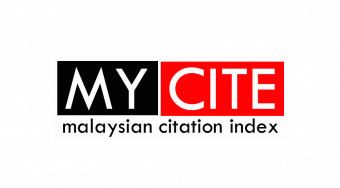THE RELATIONSHIP BETWEEN GOVERNMENT EXPENDITURE ON SELECTED SECTORS TOWARDS ECONOMIC GROWTH IN MALAYSIA
DOI:
https://doi.org/10.46754/umtjur.v2i3.169Keywords:
Government expenditure, health, education, housing, transportation, defence, economic growth, Autoregressive Distributed Lagged Model (ARDL)Abstract
Government expenditure plays an important role in the country’s economic growth. Budget allocations through the annual budget presented have their strategies to ensure that the allocated budget can improve the growth and development in Malaysia and also can be enjoyed by all Malaysian. The government’s expenditure has contributed to the expansion of this country’s development from various sectors. However, there are various problems involving government expenditure such as low level of health, homeless poor people, weak public transportation and illegal immigrants. The purpose of this study is to examine the relationship between government expenditure on health, education, housing, transportation and defence sectors towards economic growth. The data used is secondary data from 1980-2017 for 38 years from the Department of Statistics, Malaysia and World Bank Data. The method used in this study is Descriptive Analysis and Autoregressive Distributed Lagged Model (ARDL). The result showed that economic growth and government expenditure on health, education, transportation, and defence has a long-run relationship. Therefore, the government should increase more expenditure on crucial sectors such as education, transportation, defence and health that will strengthen economic growth in the long run.
References
Arus. (2014). Kesan Perbelanjaan Awam Terhadap Pembangunan Pendidikan di Malaysia, Fakulti Ekonomi dan Pengurusan, Universiti Kebangsaan Malaysia.
Asri et al. (2009). Komposisi Perbelanjaan Kerajaan dan Pertumbuhan Ekonomi: Kajian Emprikal di Malaysia. Jurnal Kemanusiaan, 1, 21-42.
Asri et al. (2012). Perbelanjaan Awam dan Pertumbuhan Ekonomi: Bukti Empirik daripada Kerajaan Negeri di Semenanjung Malaysia. International Journal of Management Studies, 19(2), 125-150.
Department of Statistics Malaysia (2017). Government Expenditure. http://www.jabatanperangkaanmalaysia.com.
Dzubaidi et al. (2013). Peranan Perbelanjaan Kerajaan Terhadap Pembangunan Manusia dan Pertumbuhan Ekonomi. Jurnal Ekonomi Malaysia, 2(2013), 872-879.
Hasnah A, Luqman A., Sanep A. & Noraziah A. (2009). Keperluan, Kepentingan dan Sumbangan Perancangan Pendidikan Dalam Pembangunan Ekonomi Malaysia, 4, 13-29.
Ibrahim, Taofik. (2016): Human Capital-Growth nexus: the role of Government Spending on Education and Health in Nigeria. MPRA Paper No. 73712.
Ismail et al. (2010). Hubungan Perbelanjaan Kerajaan dan Penggunaan Isi Rumah Di Malaysia: Analisis Mengikut Sektor, Jurnal Ekonomi Malaysia, 2(2010), 470-481.
Jabatan Penerangan Malaysia, Dasar Pertahanan Negara. (2018). pmr.penerangan.gov.my.
Karim et al., 2006. Hubungan Antara Hasil Dengan Perbelanjaan Kerajaan: Bukti Empirikal Kerajaan Negeri Di Semenanjung Malaysia. Jurnal Ekonomi Pembangunan, 7(1),17-37.
M. Hashem Pesaran, Yongcheol Shin & Richard J. Smith. (2001). Bounds Testing Approaches To The Analysis Of Level Relationship. Journal of Applied Econometrics, 16(3), 289-326.
Marcussen, L. (1990). Third World Housing in Social and Spatial Development. Aldershot: Avebury. 208 pp.
Musgrave. (1969). Cost-Benefit Analysis and the Theory of Public Finance. Journal of Economic Literature, 7(3),797-806.
Pahlevi Merita (2017), Impact of Governance and Government Expenditure on Human Development in Indonesia, International Institute of Social Studies.
Sebastian Kripfganz & Daniel Schneider. (2016). ARDL: Stata Module To Estimate Autoregressive Distributed Lag Models, Stata Conference, Chicago, July 29, 2016.
Shukri M. Zaki (2013). Corak dan Agihan dalam Perbelanjaan Kerajaan dan Kesan Terhadap Pertumbuhan Ekonomi Negara : Kajian Empirikal bagi Kes Malaysia, Prosiding PERKEM (2013) 719-724.
World Bank Data. (2018). GDP Malaysia. http://www.worldbankdata.com.
Za’afar et al. (2014). Hubungan Di Antara Pertumbuhan Ekonomi, Perbelanjaan Dan Hasil Kerajaan: Kajian Kes Di Negeri Sarawak, Prosiding PERKEM, 71-80.




